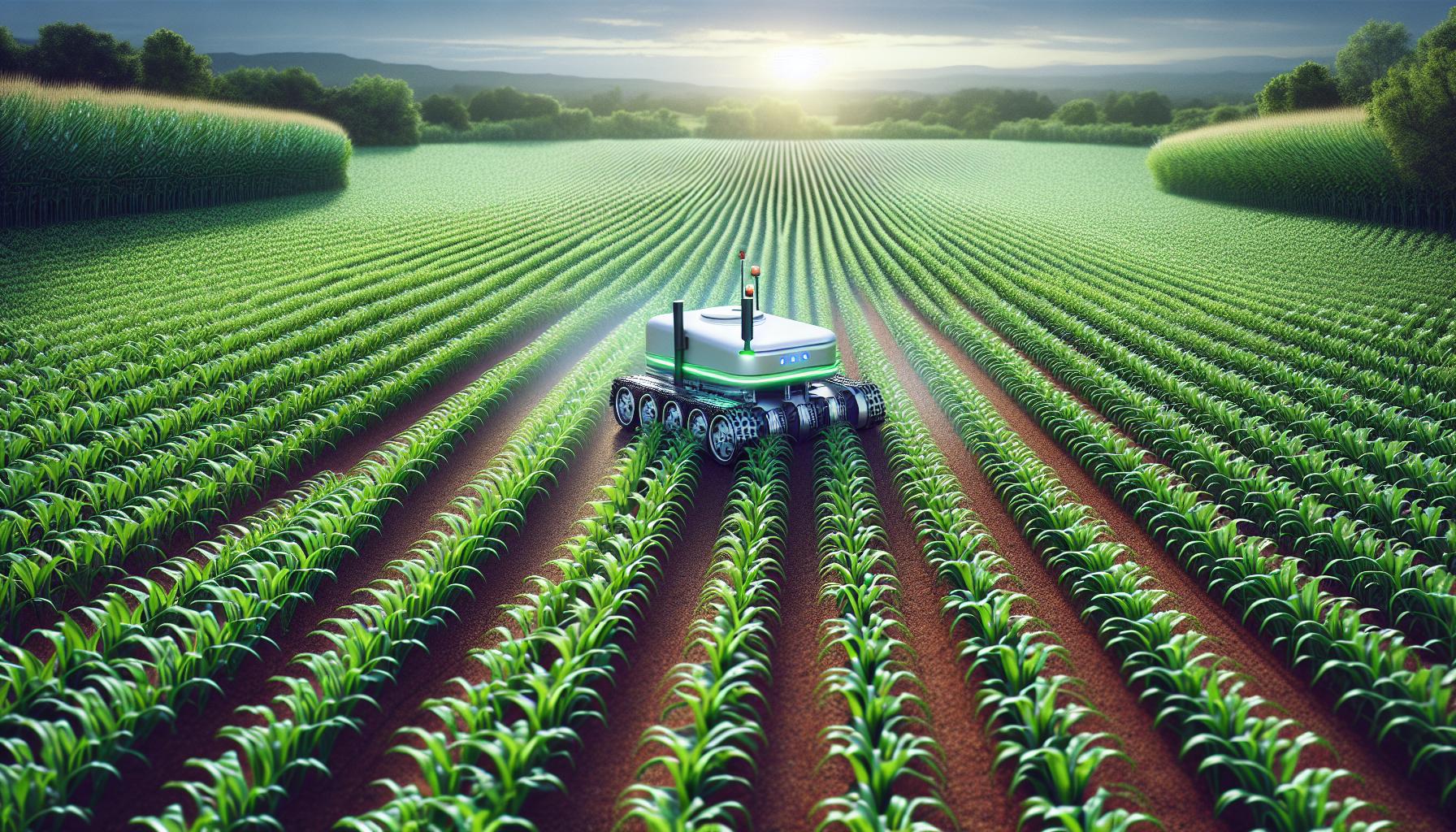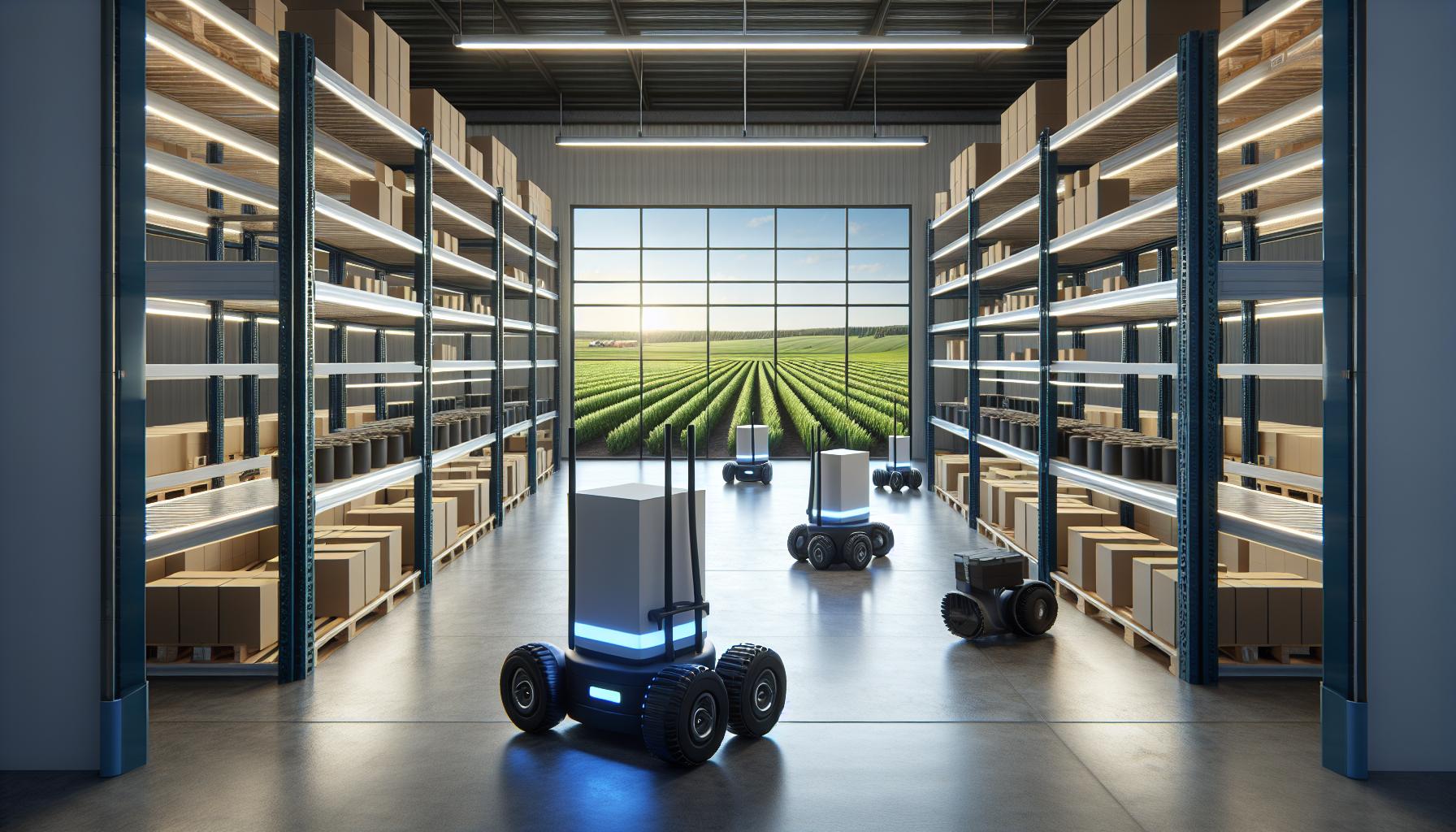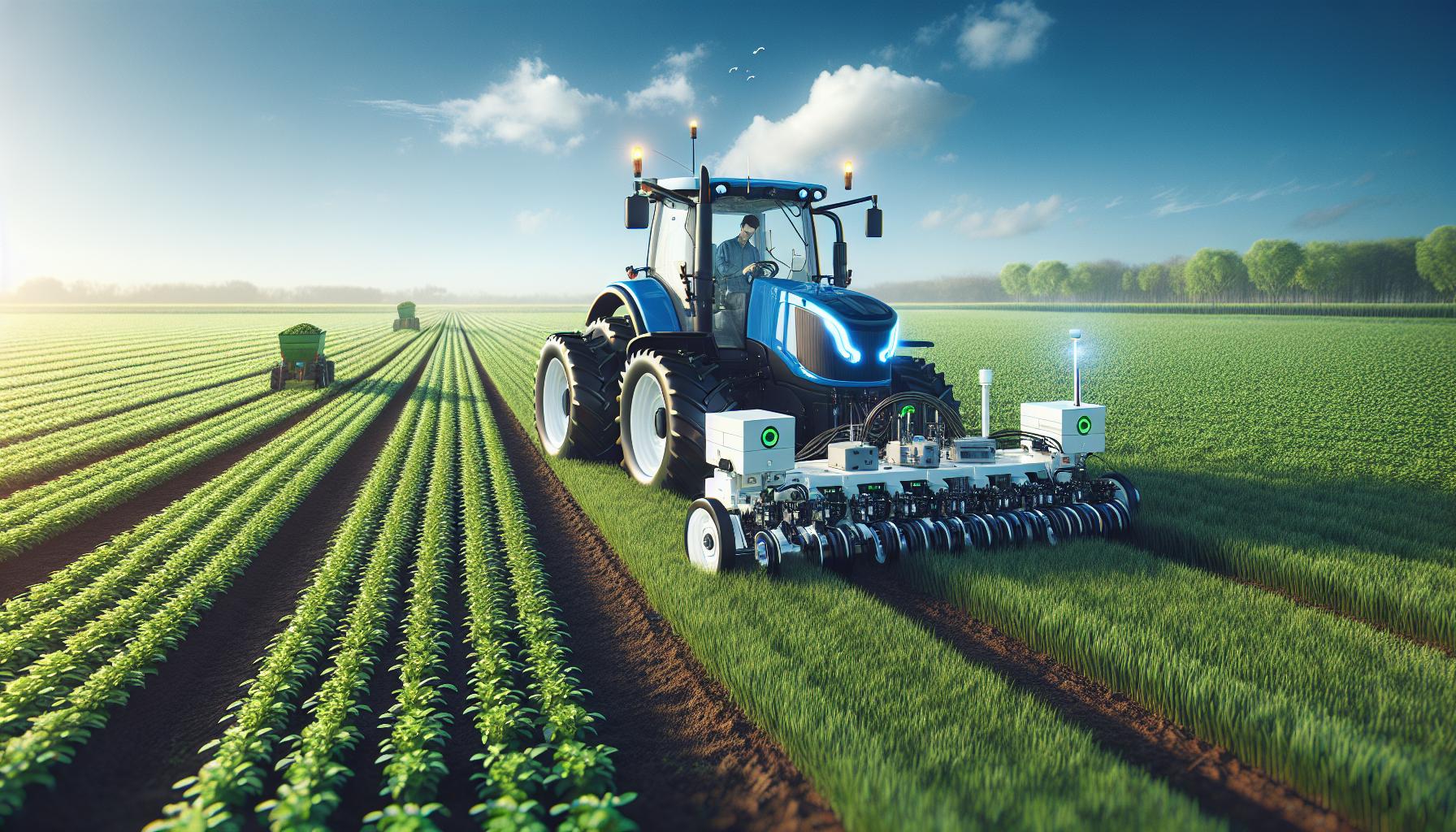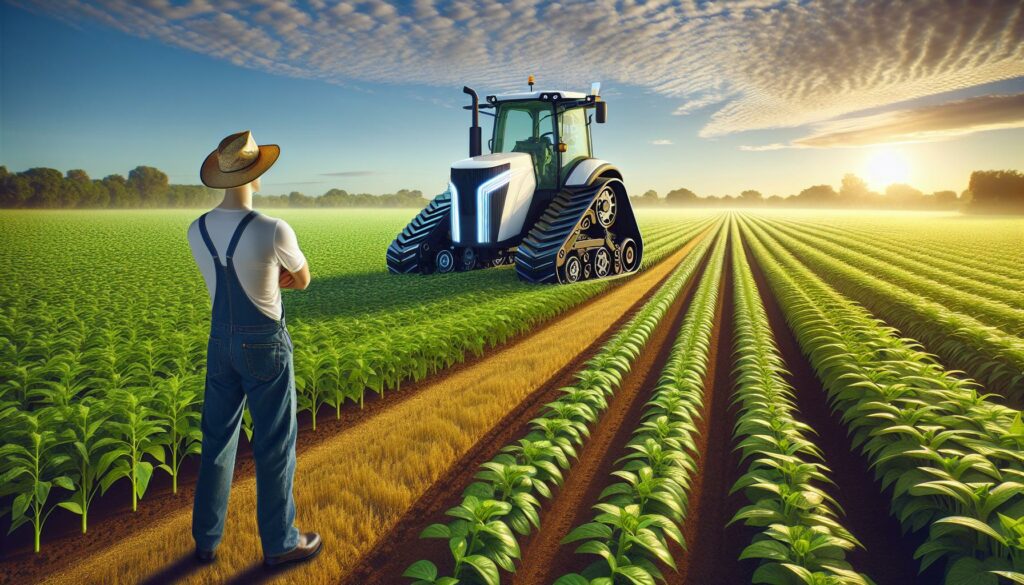I’ve always been fascinated by how technology reshapes our world, and Ike Robotics is a prime example of this transformation. Specializing in autonomous vehicles for the agricultural sector, Ike Robotics is revolutionizing how we approach farming. Their innovative solutions not only boost efficiency but also promise to enhance sustainability in an industry facing numerous challenges. As I dive deeper into the realm of Ike Robotics, I’m excited to explore how their cutting-edge technology is paving the way for a smarter, more productive future in agriculture. From autonomous tractors to precision farming tools, Ike Robotics is at the forefront of a movement that could redefine food production. Join me as I unpack the impact of this remarkable company and its vision for the future of farming.
- Ike Robotics specializes in autonomous vehicles for the agricultural sector, aiming to enhance efficiency and sustainability in farming practices.
- Their innovative products include autonomous tractors, precision farming tools, and data analytics software, all designed to automate labor-intensive agricultural tasks.
- The company leverages advanced sensor integration and machine learning algorithms to optimize operations and provide actionable insights for farmers.
- Key applications of Ike Robotics’ technology include warehouse automation and agriculture enhancement, leading to increased productivity and reduced operational costs.
- While the benefits of Ike Robotics are significant, challenges such as high initial costs and market competition can hinder widespread adoption of their solutions.
Ike Robotics
Ike Robotics focuses on delivering advanced autonomous solutions for agriculture. The company’s autonomous vehicles, primarily designed for farming, aim to automate tasks that traditionally require significant labor. These vehicles enhance operational efficiency, reduce labor costs, and promote sustainability by minimizing resource use.
Ike Robotics specializes in several innovative products:
- Autonomous Tractors: These tractors navigate fields with precision, improving cultivation and harvesting processes. Their ability to operate continuously increases productivity.
- Precision Farming Tools: These tools gather data on soil health and crop conditions, allowing farmers to make informed decisions. They help optimize inputs like water and fertilizers.
- Data Analytics Software: This software processes data collected by vehicles and tools, providing actionable insights. Farmers can enhance yields and manage resources effectively.
Ike Robotics’ vision aligns with the industry’s shift toward automation, helping farmers meet the demands of an increasing global population while preserving the environment.
Technology Behind Ike Robotics

Ike Robotics leverages cutting-edge technology to transform agricultural practices. Key components of their innovations include sensor integration and advanced machine learning algorithms.
Sensor Integration
Sensor integration forms the backbone of Ike Robotics’ autonomous vehicles. It enables real-time data collection from various sources, such as GPS for location tracking and cameras for obstacle detection. Proximity sensors assist in navigating tight spaces, while environmental sensors monitor soil moisture and nutrient levels. This comprehensive data provides farmers with actionable insights, allowing for more precise interventions based on specific field conditions. The synergy of these sensors enhances operational efficiency and minimizes resource wastage.
Machine Learning Algorithms
Machine learning algorithms play a crucial role in optimizing operations at Ike Robotics. These algorithms analyze data collected from sensors to identify patterns and predict outcomes. For instance, by assessing historical crop yield data alongside real-time environmental information, the algorithms can recommend optimal planting schedules and crop rotations. The use of predictive analytics drives intelligent decision-making in real time, adapting to changes in weather and soil conditions. This undoubtedly enhances productivity and sustainability, reinforcing Ike Robotics’ commitment to modern farming solutions.
Applications of Ike Robotics

Ike Robotics excels in various applications that revolutionize traditional methods. Its innovative solutions drive efficiency in both warehouse automation and agriculture enhancement.
Warehouse Automation
Ike Robotics leverages autonomous vehicles to streamline warehouse operations. These vehicles transport goods with accuracy, reducing the time spent on manual handling. The integration of advanced sensors allows for real-time tracking of inventory, optimizing stock levels and minimizing losses. Their autonomous systems further enhance safety by navigating complex environments, reducing the risk of accidents caused by human error. This automation not only boosts productivity but also cuts operational costs significantly.
Agriculture Enhancement
Ike Robotics transforms agriculture through precision farming tools and autonomous tractors. Autonomous tractors perform tasks such as plowing, planting, and harvesting with unparalleled efficiency. Their adaptive technology responds to varying field conditions, optimizing resource use. Precision farming tools collect vital data on soil health, crop growth, and weather patterns, enabling farmers to make informed decisions. This data-driven approach leads to higher yields and reduced environmental impact. By reducing labor demands and increasing operational precision, Ike Robotics contributes significantly to sustainable agricultural practices.
Advantages of Ike Robotics

Ike Robotics offers numerous benefits that directly enhance agricultural practices and operational productivity. The following subsections detail key advantages that showcase the company’s innovative contributions.
Efficiency and Productivity
Ike Robotics enhances operational efficiency through autonomous tractors that navigate farmland with precision. These vehicles increase productivity by performing tasks such as planting, harvesting, and monitoring crops without constant human oversight. Accessing real-time data about soil health and crop conditions allows farmers to make informed decisions, minimizing the need for resource-intensive practices. This automation leads to significant time savings, enabling farmers to focus on strategic planning rather than labor-intensive activities.
Safety Features
Safety remains a priority in Ike Robotics’ design approach. Autonomous vehicles utilize advanced sensors and machine learning algorithms to detect obstacles and navigate hazards. This technology drastically reduces the risk of accidents in the field and warehouse environments. Implementing fail-safe mechanisms ensures that operators can intervene quickly in emergencies, further enhancing environmental safety. By prioritizing safety in autonomous systems, Ike Robotics supports a reduction in workplace injuries and promotes a safer working environment for all.
Challenges and Limitations
Despite the advancements that Ike Robotics brings to agriculture, several challenges and limitations persist in its adoption and implementation.
Technological Barriers
Technological barriers hinder the widespread integration of Ike Robotics’ solutions in farming. High initial costs for autonomous vehicles and advanced technology deter many farmers from investing. Limited access to reliable internet connectivity in rural areas complicates data transfer and sensor functionality, affecting the effectiveness of precision farming tools. Furthermore, the complexity of machine learning algorithms often requires specialized knowledge for proper utilization, creating a gap in farmer training and expertise.
Market Competition
Market competition poses significant challenges to Ike Robotics. A growing number of companies enter the agricultural technology sector, offering similar autonomous solutions that increase efficiency and productivity. Established agricultural equipment manufacturers leverage their brand reputation and market share to attract customers, sometimes overshadowing newer entrants. Additionally, varying regional regulations and standards complicate competing on a global scale, as Ike Robotics must navigate diverse agricultural practices and preferences in different markets.
Ike Robotics stands at the forefront of agricultural innovation. Their commitment to automation is reshaping how we approach farming and food production. By integrating advanced technologies like autonomous tractors and precision farming tools, they’re not just improving efficiency but also promoting sustainability in a world that desperately needs it.
As I reflect on the potential of Ike Robotics, I’m excited about the future of agriculture. The combination of real-time data collection and intelligent decision-making could lead to significant advancements in crop yields and resource management. While challenges remain, the vision of a more efficient and sustainable farming landscape is within reach. Embracing these innovations is essential for meeting the needs of a growing population while protecting our environment.

